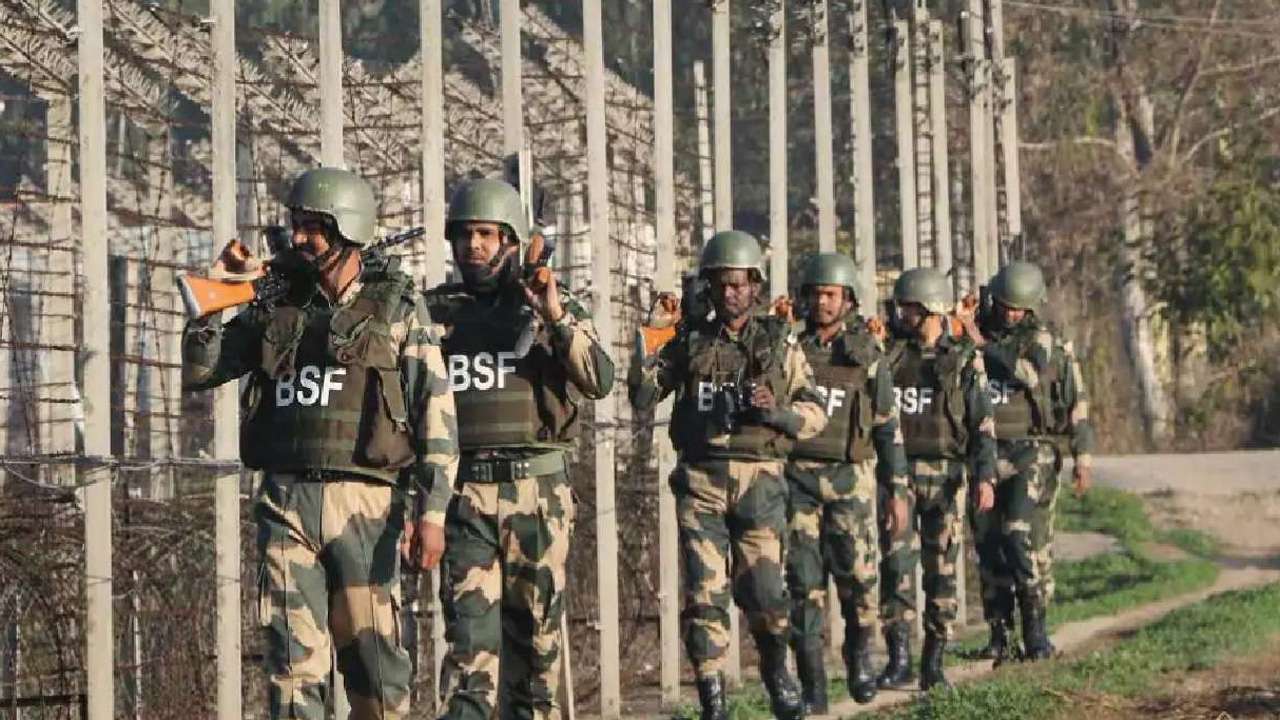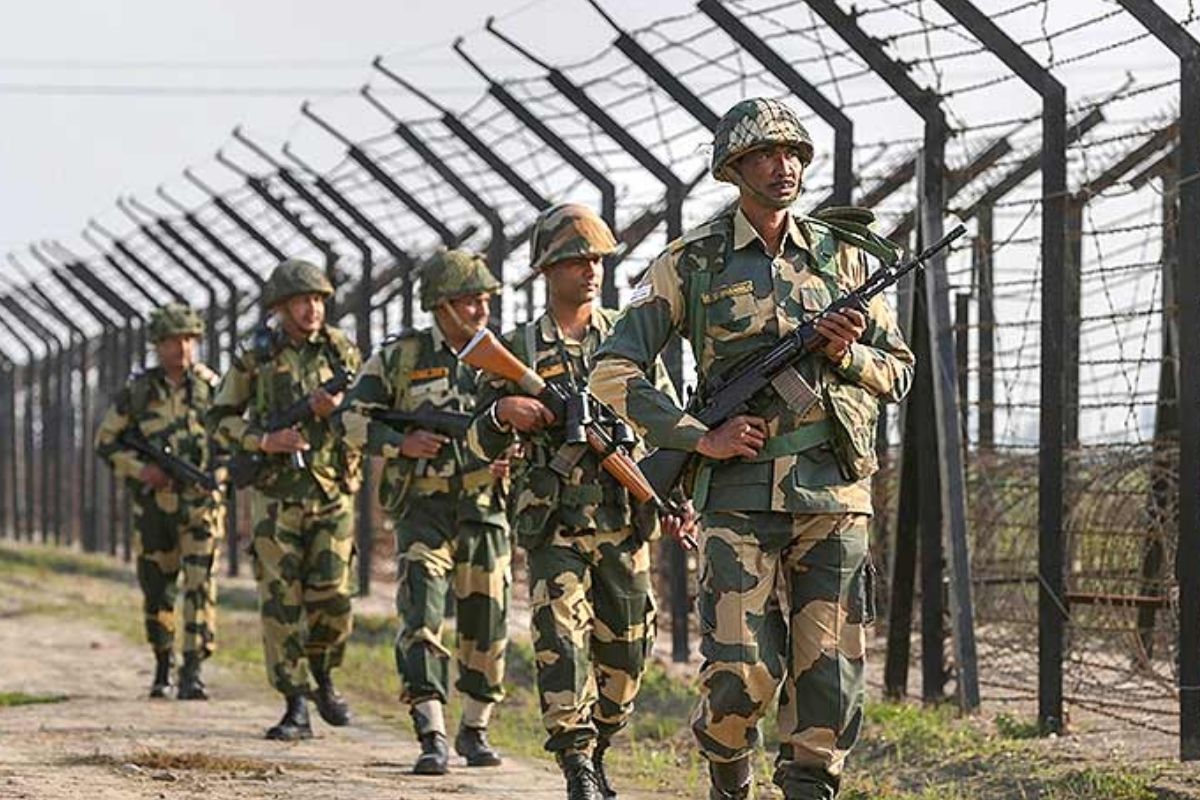BSF now has uniform 50 km jurisdiction in border states for arrest, search, seizure
In an order to maintain "zero tolerance" against terrorism and cross border crimes, the Centre has empowered the Border Security Force (BSF) to conduct searches, arrest suspects and make seizures up to an area of 50 km inside Indian territory from the International Border along India-Pakistan and India-Bangladesh borders.
 The move might raise administrative and political issues as the Ministry of Home Affairs has extended the area of jurisdiction of the BSF with a fresh order issued earlier this week allowing its officers to take action to curb illegal activities linked to national security in 10 states and two Union Territories.
Also Read | Ropar soldier Gajjan Singh’s body returns wrapped in Tricolour
The move might raise administrative and political issues as the Ministry of Home Affairs has extended the area of jurisdiction of the BSF with a fresh order issued earlier this week allowing its officers to take action to curb illegal activities linked to national security in 10 states and two Union Territories.
Also Read | Ropar soldier Gajjan Singh’s body returns wrapped in Tricolour
 As per the fresh order, the BSF, which was only empowered to take action up to fifteen kilometres in the states of Punjab, West Bengal and Assam, has now been authorised to spread its jurisdiction up to 50 km without any hurdle or further permission either from central or state governments.
Also Read | Coronavirus update: India reports 15,823 new Covid-19 cases
As per the fresh order, the BSF, which was only empowered to take action up to fifteen kilometres in the states of Punjab, West Bengal and Assam, has now been authorised to spread its jurisdiction up to 50 km without any hurdle or further permission either from central or state governments.
Also Read | Coronavirus update: India reports 15,823 new Covid-19 cases
 However, its jurisdiction has been cut short by 20 km in the five northeastern states-- Manipur, Mizoram, Tripura, Nagaland and Meghalaya-- where it had jurisdiction up to 80 km.
However, its jurisdiction has been cut short by 20 km in the five northeastern states-- Manipur, Mizoram, Tripura, Nagaland and Meghalaya-- where it had jurisdiction up to 80 km.
 Similarly in Gujarat, the BSF's jurisdiction has been curtailed from 80 to 50 km. In Rajasthan, the BSF's area of jurisdiction will remain the same at 50 km.
An officer of the rank corresponding to that of the lowest rank of member of the BSF is now empowered under the CrPC to exercise and discharge the powers and duties without an order from a Magistrate and without a warrant.
Similarly in Gujarat, the BSF's jurisdiction has been curtailed from 80 to 50 km. In Rajasthan, the BSF's area of jurisdiction will remain the same at 50 km.
An officer of the rank corresponding to that of the lowest rank of member of the BSF is now empowered under the CrPC to exercise and discharge the powers and duties without an order from a Magistrate and without a warrant.
 The officer is now empowered to arrest any person who has been concerned in any cognizable offence, or against whom a reasonable complaint has been made, or credible information has been received. A BSF officer has now been given the power to conduct a search of a place entered by a person sought to be arrested in its new area of jurisdiction.
As per the latest notification, an officer of the rank corresponding to that of the lowest rank of member of the force is empowered under the Code of Criminal Procedure, 1973 (2 of 1974), to exercise and discharge the powers and duties under sub-section (1) of section 41, section 47, sub-section (1) of section 51, sections 52, 149, 150, 151 and section 152 of the Code of Criminal Procedure, 1973 (2 of 1974).
-PTC News
The officer is now empowered to arrest any person who has been concerned in any cognizable offence, or against whom a reasonable complaint has been made, or credible information has been received. A BSF officer has now been given the power to conduct a search of a place entered by a person sought to be arrested in its new area of jurisdiction.
As per the latest notification, an officer of the rank corresponding to that of the lowest rank of member of the force is empowered under the Code of Criminal Procedure, 1973 (2 of 1974), to exercise and discharge the powers and duties under sub-section (1) of section 41, section 47, sub-section (1) of section 51, sections 52, 149, 150, 151 and section 152 of the Code of Criminal Procedure, 1973 (2 of 1974).
-PTC News